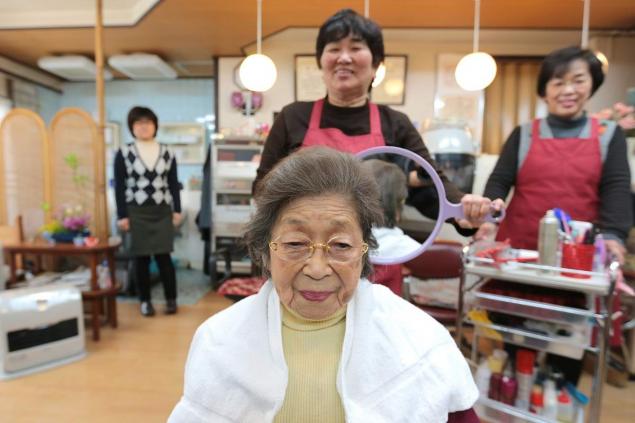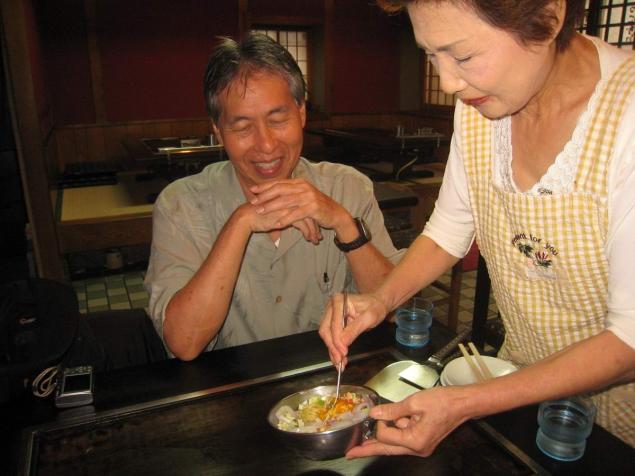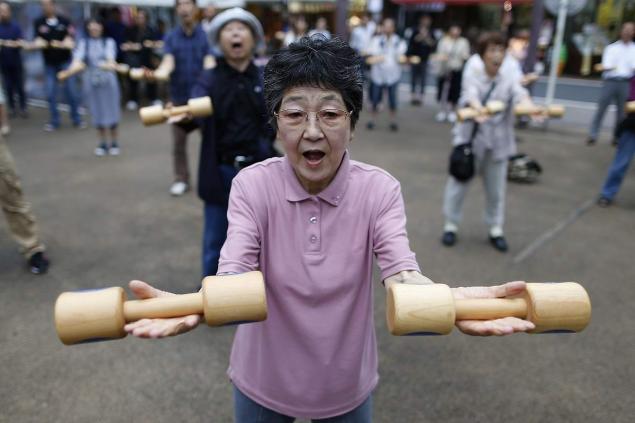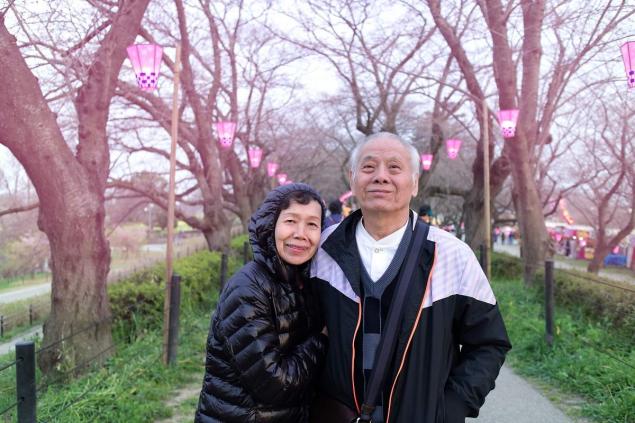204
What habits have conscious Japanese citizens abandoned and why we should follow their example
For centuries, humanity has been searching for the secret of eternal youth. And as much as we all want to live a long and active life, there are countries that do it best. One such country is Japan. The average life expectancy in the Land of the Rising Sun (81.64 years) has become a record and is almost 11 years higher than the global average (71 years). What are the traditions of the Japanese for this reason and what habits of the Eastern nation had to give up on the way to longevity? And one more question: how old do you think the woman in the photo is? The answers are in our article.

Japanese Traditions Vegetables or Meat? Traditional Japanese food is similar to Mediterranean food. The priority is vegetables, fish and seafood, which are consumed every day. The oil is mostly vegetable. Eggs up to four times a day.

The Japanese eat very little meat. The chicken is more familiar. Red meat can be seen on the festive table. Another feature of Japanese cuisine is the almost complete absence of dairy and a large number of soy products. Portions are usually small. Plus, eating chopsticks slows down the meal. As a result, Japanese eat an average of 20% less than Europeans per meal.
Japanese doctors have long found that hot food and mucous drinks are a serious risk factor and cause of gastrointestinal diseases. The country has organized an awareness campaign, after which many people have reconsidered their eating habits.

At the same time, we have hot food traditionally considered synonymous with healthy and tasty. “You will not eat hot, you will spoil your stomach – you will regret that you did not listen to me!” – used to say, mother, when I, a little boy, refused the obligatory first.
In fact, nature has created man not very adapted to eating hot food. Moreover, getting used to the burning sensation of food, we gradually lose sensitivity and can no longer distinguish very hot food from just warm. Over time, this can cause inflammation in the stomach, which ends in gastritis.
In the 70s of the last century, Japanese scientists were looking for the cause of the high level of heart disease and blood vessels in the country. As it turned out, amid a generally healthy diet, many people ate too much salt.

Today, the average daily salt intake in Japan has decreased by 4 times (from 40 to 10 grams per day). And the habit of our citizens first of all to salt dishes, not yet tried, causes the Japanese extraordinary surprise.
TV or walks? Japanese gerontologists say that the best remedy for age-related brain changes is constant study. That’s why Japanese pensioners read at least an hour a day.

On TV screens, older Japanese spend an average of half an hour a day, giving more time to walk. For comparison, older Russians sit at TV screens for about 4 hours a day, spending 20 times more time on it than on physical activity.
In Japan, the state takes seriously the health of citizens. Implement programs aimed at extending longevity. The goal is to reduce the gap between total life expectancy and its active period. Much attention is paid to the early detection and prevention of chronic diseases.

Japanese pensioners actively communicate with peers, go to theaters and cafes, which allows you to retain cognitive abilities of the brain longer. The elderly are offered free education, various interest clubs are created for them, and social activity and social ties are encouraged.
As you can see, thanks to the care of the state and useful habits on our list, the Japanese manage to postpone the onset of old age. Perhaps some of the above should be adopted by us. And the promised answer: Masa Narita from Osaka, pictured in the first photo, had just celebrated her 100th birthday. She lives alone in her home because she values independence and freedom. She regularly visits a beauty salon and maintains her health by reading daily newspapers and cooking three times a day. “Activity is the key to longevity,” says Narita.
The article and the preview used photos.

Japanese Traditions Vegetables or Meat? Traditional Japanese food is similar to Mediterranean food. The priority is vegetables, fish and seafood, which are consumed every day. The oil is mostly vegetable. Eggs up to four times a day.

The Japanese eat very little meat. The chicken is more familiar. Red meat can be seen on the festive table. Another feature of Japanese cuisine is the almost complete absence of dairy and a large number of soy products. Portions are usually small. Plus, eating chopsticks slows down the meal. As a result, Japanese eat an average of 20% less than Europeans per meal.
Japanese doctors have long found that hot food and mucous drinks are a serious risk factor and cause of gastrointestinal diseases. The country has organized an awareness campaign, after which many people have reconsidered their eating habits.

At the same time, we have hot food traditionally considered synonymous with healthy and tasty. “You will not eat hot, you will spoil your stomach – you will regret that you did not listen to me!” – used to say, mother, when I, a little boy, refused the obligatory first.
In fact, nature has created man not very adapted to eating hot food. Moreover, getting used to the burning sensation of food, we gradually lose sensitivity and can no longer distinguish very hot food from just warm. Over time, this can cause inflammation in the stomach, which ends in gastritis.
In the 70s of the last century, Japanese scientists were looking for the cause of the high level of heart disease and blood vessels in the country. As it turned out, amid a generally healthy diet, many people ate too much salt.

Today, the average daily salt intake in Japan has decreased by 4 times (from 40 to 10 grams per day). And the habit of our citizens first of all to salt dishes, not yet tried, causes the Japanese extraordinary surprise.
TV or walks? Japanese gerontologists say that the best remedy for age-related brain changes is constant study. That’s why Japanese pensioners read at least an hour a day.

On TV screens, older Japanese spend an average of half an hour a day, giving more time to walk. For comparison, older Russians sit at TV screens for about 4 hours a day, spending 20 times more time on it than on physical activity.
In Japan, the state takes seriously the health of citizens. Implement programs aimed at extending longevity. The goal is to reduce the gap between total life expectancy and its active period. Much attention is paid to the early detection and prevention of chronic diseases.

Japanese pensioners actively communicate with peers, go to theaters and cafes, which allows you to retain cognitive abilities of the brain longer. The elderly are offered free education, various interest clubs are created for them, and social activity and social ties are encouraged.
As you can see, thanks to the care of the state and useful habits on our list, the Japanese manage to postpone the onset of old age. Perhaps some of the above should be adopted by us. And the promised answer: Masa Narita from Osaka, pictured in the first photo, had just celebrated her 100th birthday. She lives alone in her home because she values independence and freedom. She regularly visits a beauty salon and maintains her health by reading daily newspapers and cooking three times a day. “Activity is the key to longevity,” says Narita.
The article and the preview used photos.
I thought I was an extreme owl and my wife a radical lark, but it turns out we're both pigeons.
Mikhail Labkovsky himself gave 22 tips, thanks to which 2022 will be happy without any problems.























